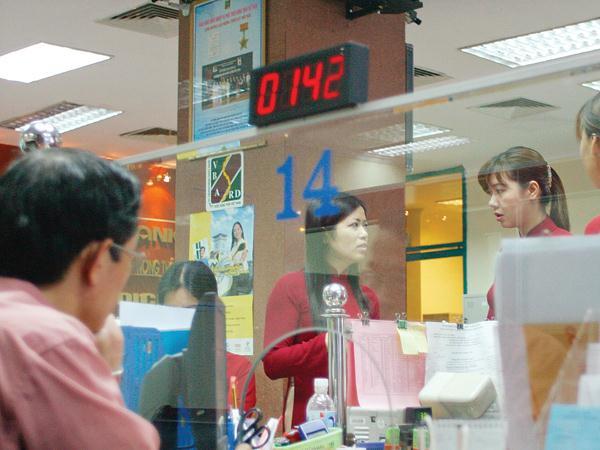Experts forecast credit growth below target

Addressing National Assembly (NA) deputies at the ongoing sixth session, Prime Minister Nguyen Tan Dung reported that credit growth hit 6.64 per cent in the first nine months, well exceeding the 2.5 per cent seen in 2012.
The government is hoping credit will soar in the last quarter after wide-ranging measures to spur demand and streamline lending procedures were aimed at meeting full-year 12 per cent target.
Economic experts and bank executives are not so sure.
Senior economist Le Xuan Nghia said credit growth may reach only 11 per cent this year as banks have abundant capital sources but the economy has poor liquidity, thereby hindering capital circulation.
Deputy general director of DongA Bank Nguyen Thi Ngoc Van said that businesses are finding it difficult to boost consumption and banks are limiting their lending.
Deputy general director at VIB Bank Le Quang Trung said he expects credit to grow by 9 per cent this year.
While many banks have reported sharp credit growth in recent months, this is in terms of volume and most were personal loans, while business lending, particularly to small and medium-sized enterprises (SME), saw little improvement.
Ho Chi Minh City-based Sacombank reported 13.4 per cent credit growth by the end of September, but 70 per cent of outstanding loans were held by individual customers.
State giant Vietcombank, as of September, expanded its credit by 5.1 per cent, skyrocketing against 1.47 per cent negative growth in the first six months of the year.
“Lending to SMEs, however, only represented around 12 per cent of the bank’s total outstanding loans,” said Vietcombank deputy general director Truong Thuy Nga.
Despite modest forecasts for 2013, experts anticipate much greater credit growth in 2014.
Nghia highlighted a number of factors behind his 2014 projection of 14-15 per cent.
First is that exports are expected to rise by 10 per cent next year.
Secondly was that the government has set a 2014 GDP growth target of 5.8 per cent, and the budget deficit will be 5.3 per cent along with a planned 30 per cent increase of the budgets social investment. More public investment would propel growth in other sectors, and thus fuel credit growth.
Thirdly, Vietnam has begun tackling bad debts and drastic measures are planned for next year to further open capital flows.
Experts have warned that the economy will only rebound after Vietnam has successfully sold off its bad debts.
World experiences show that quite frequently foreign players jump into countries with credit problems to buy up bad debts.
In the case of Korea, US groups were active buyers of the country’s debt. After successful restructuring of these businesses three years later, they sold them off to other Korean firms and exited. This helped Korea get rid of bad debt crisis quickly and ailing banks had grown healthy.
What the stars mean:
★ Poor ★ ★ Promising ★★★ Good ★★★★ Very good ★★★★★ Exceptional
Latest News
More News
- Cashless payments hit 28 times GDP in 2025 (February 04, 2026 | 18:09)
- SSIAM and DBJ launch Japan Vietnam Capital Fund (February 04, 2026 | 15:57)
- Banks target stronger profits, credit growth in 2026 (February 04, 2026 | 15:43)
- Vietnam on path to investment-grade rating (February 03, 2026 | 13:07)
- Consumer finance sector posts sharp profit growth (February 03, 2026 | 13:05)
- Insurance market building the next chapter of protection (February 02, 2026 | 11:16)
- NAB Innovation Centre underscores Vietnam’s appeal for tech investment (January 30, 2026 | 11:16)
- Vietnam strengthens public debt management with World Bank and IMF (January 30, 2026 | 11:00)
- Corporate bond market poised for stronger growth cycle (January 28, 2026 | 17:13)
- Vietnam's IPO market on recovery trajectory (January 28, 2026 | 17:04)
















 Mobile Version
Mobile Version